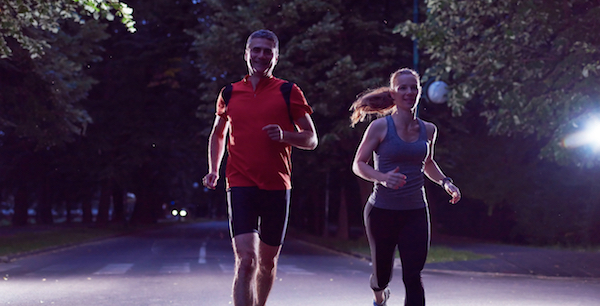Our lives are becoming more and busier each year as we try and fit in all our activities into the day. One of these regular activities is working out, which has long been heralded as a way of improving sleep quality.
However, it’s been widely believed that exercising late in the evening can negatively affect sleep quality.
Researchers at the Institute of Human Movement Sciences and Sport at ETH Zurich analysed a total of 23 studies which contained a combined total of 275 participants to examine the connection between sleep and exercise.
What Did The Results Show?
The analysis showed that exercising before bed could not make sleep worse. The study then went deeper and concluded that those who exercise in the evening improved the percentage of time spent in a deep sleep or slow wave sleep.
Slow wave sleep is hugely important because this is the type of sleep that makes us feel refreshed and rejuvenated when we wake in the morning. The less slow-wave sleep you get, the more tired you’ll feel in the morning.
Once all the data had been analysed, it showed that those who did a form of exercise within four hours of going to sleep benefited from an average of 21.2% of their night in a deep sleep.
Whereas those who didn’t exercise within this time window saw a nightly deep sleep percentage of 19.9%.

Are There Any Exceptions?
There is a single exception to the findings, which is if you take part in rigorous training such as HIIT an hour before you plan on going to sleep.
Vigorous exercise causes a significant rise in heart rate, and there isn’t enough time for your heart rate to decrease back down to its resting rate, so your body will not be rested and ready to fall asleep.
The study showed that those who exercised and then tried to sleep had a heart rate that was more than 20 beats per minute above their usual resting heart rate.
So What Is Vigorous Exercise?
Vigorous exercise is often described as being in a state where it’s difficult to hold a conversation because you’re working so hard, whereas if you can comfortably talk to someone while exercising then this is a moderate pace.
Does This Work For Everyone?
While the study does show some compelling evidence, all of our bodies are different and react to training and sleep in different ways, so the most important thing is that you listen to your body.
Spengler, head of the Exercise Physiology Lab at ETH Zurich, also echoed this sentiment: “People respond differently, and what is right for one may not be quite right for the other,”
She also recommended that for optimal results you should test different intensity workouts for two or three days a week and then monitor how you sleep after doing light, moderate or intense workouts.
If you still encounter trouble sleeping, then you may need to exercise at a lower intensity or exercise earlier in the day. However, if you wake up in the morning bouncing full of energy, then you may have found your sweet spot.
